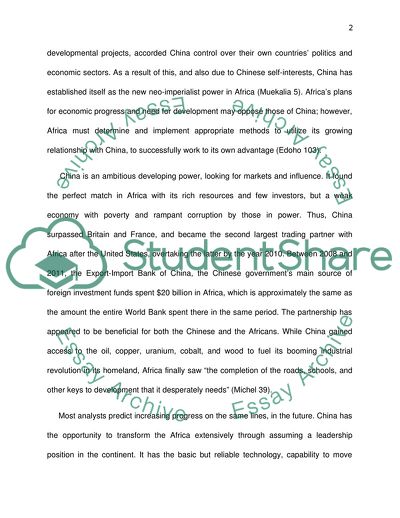Cite this document
(Does Africa Benefit from Chinas Foreign Policy Essay Example | Topics and Well Written Essays - 1250 words, n.d.)
Does Africa Benefit from Chinas Foreign Policy Essay Example | Topics and Well Written Essays - 1250 words. https://studentshare.org/social-science/1782732-does-africa-benefit-from-chinas-foreign-policy
Does Africa Benefit from Chinas Foreign Policy Essay Example | Topics and Well Written Essays - 1250 words. https://studentshare.org/social-science/1782732-does-africa-benefit-from-chinas-foreign-policy
(Does Africa Benefit from Chinas Foreign Policy Essay Example | Topics and Well Written Essays - 1250 Words)
Does Africa Benefit from Chinas Foreign Policy Essay Example | Topics and Well Written Essays - 1250 Words. https://studentshare.org/social-science/1782732-does-africa-benefit-from-chinas-foreign-policy.
Does Africa Benefit from Chinas Foreign Policy Essay Example | Topics and Well Written Essays - 1250 Words. https://studentshare.org/social-science/1782732-does-africa-benefit-from-chinas-foreign-policy.
“Does Africa Benefit from Chinas Foreign Policy Essay Example | Topics and Well Written Essays - 1250 Words”. https://studentshare.org/social-science/1782732-does-africa-benefit-from-chinas-foreign-policy.


